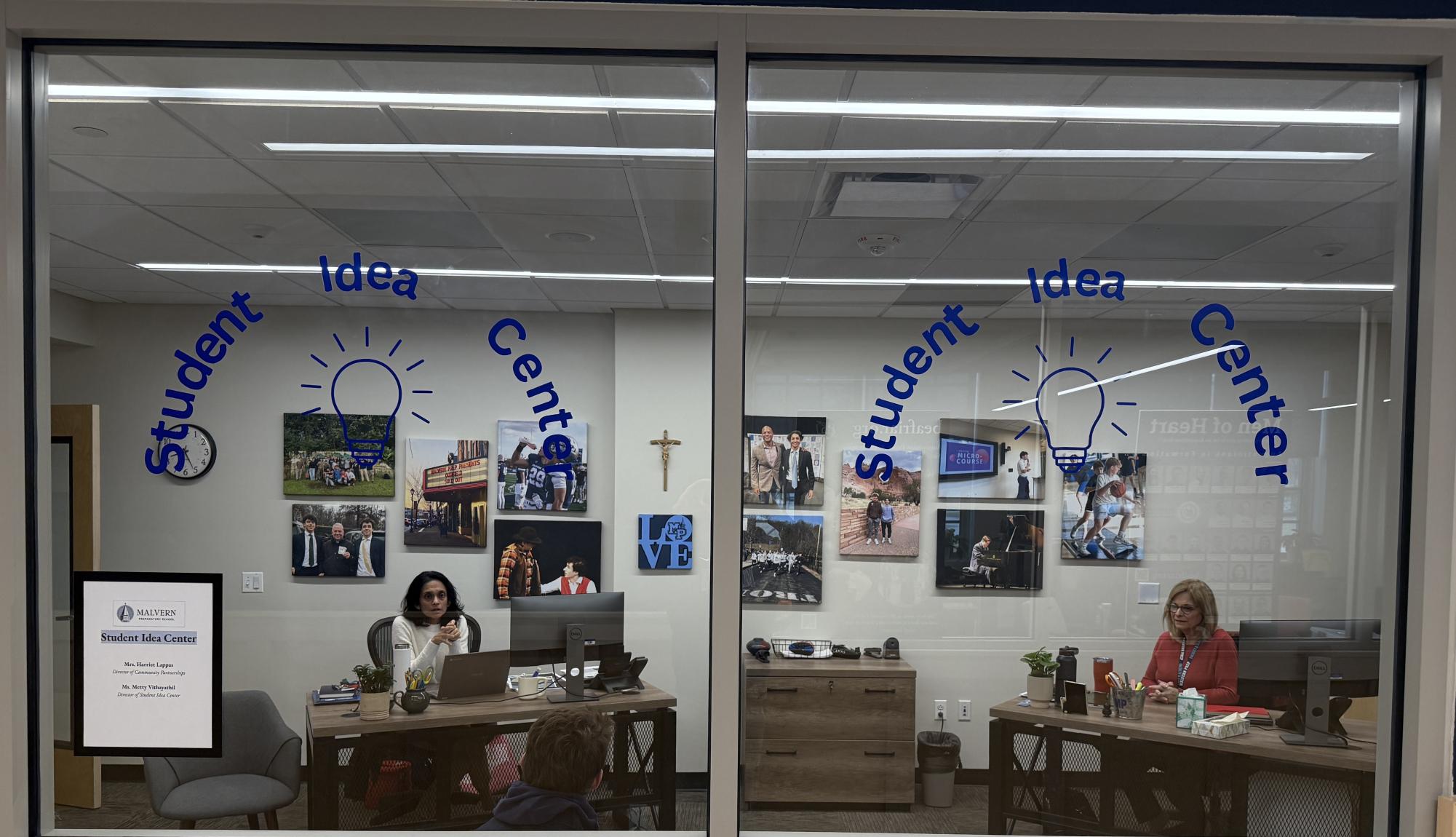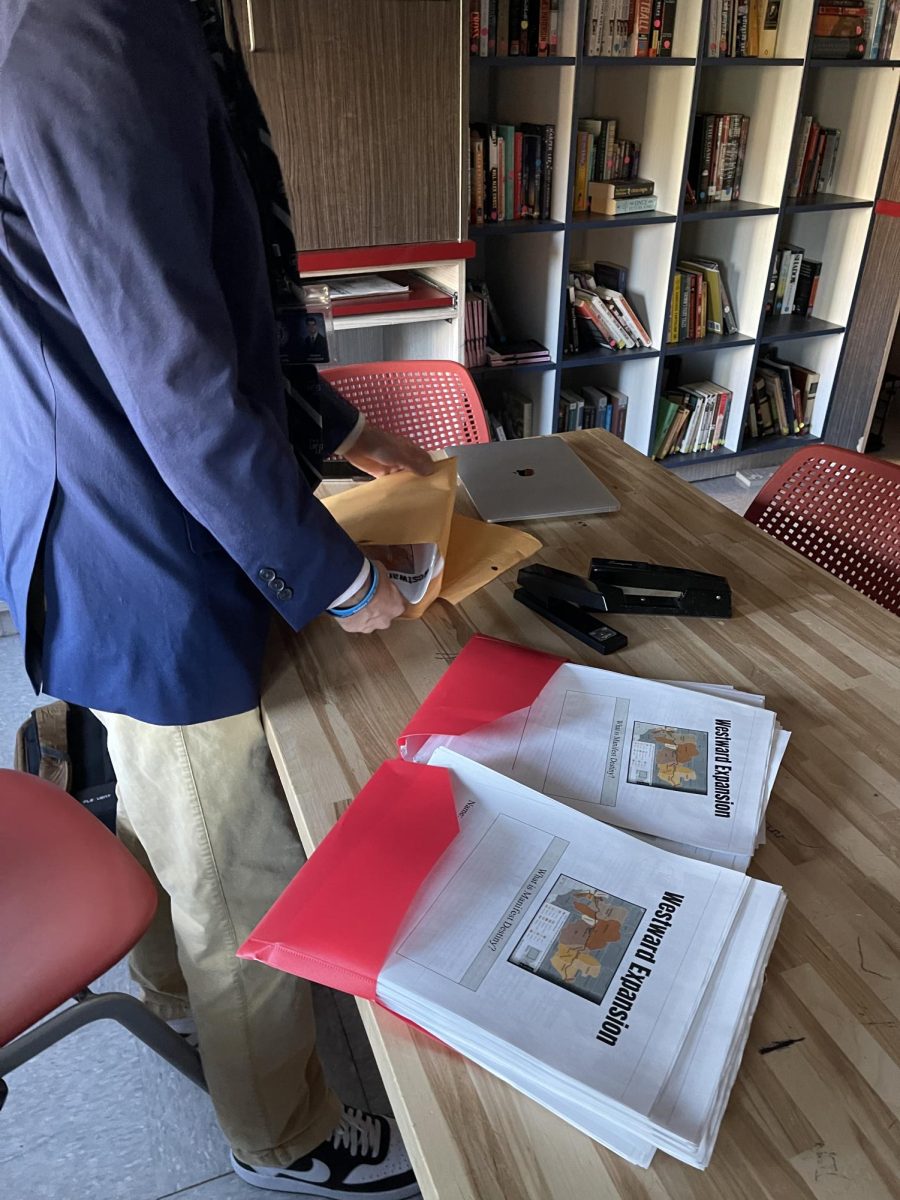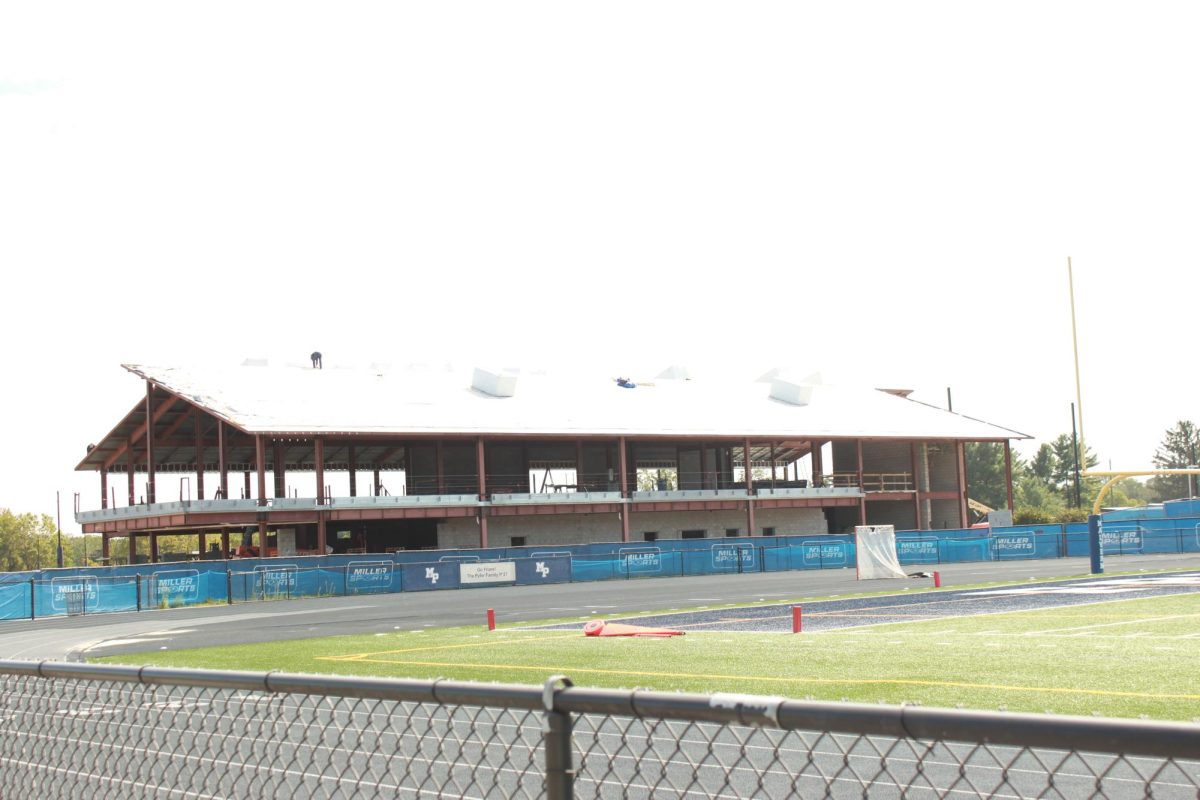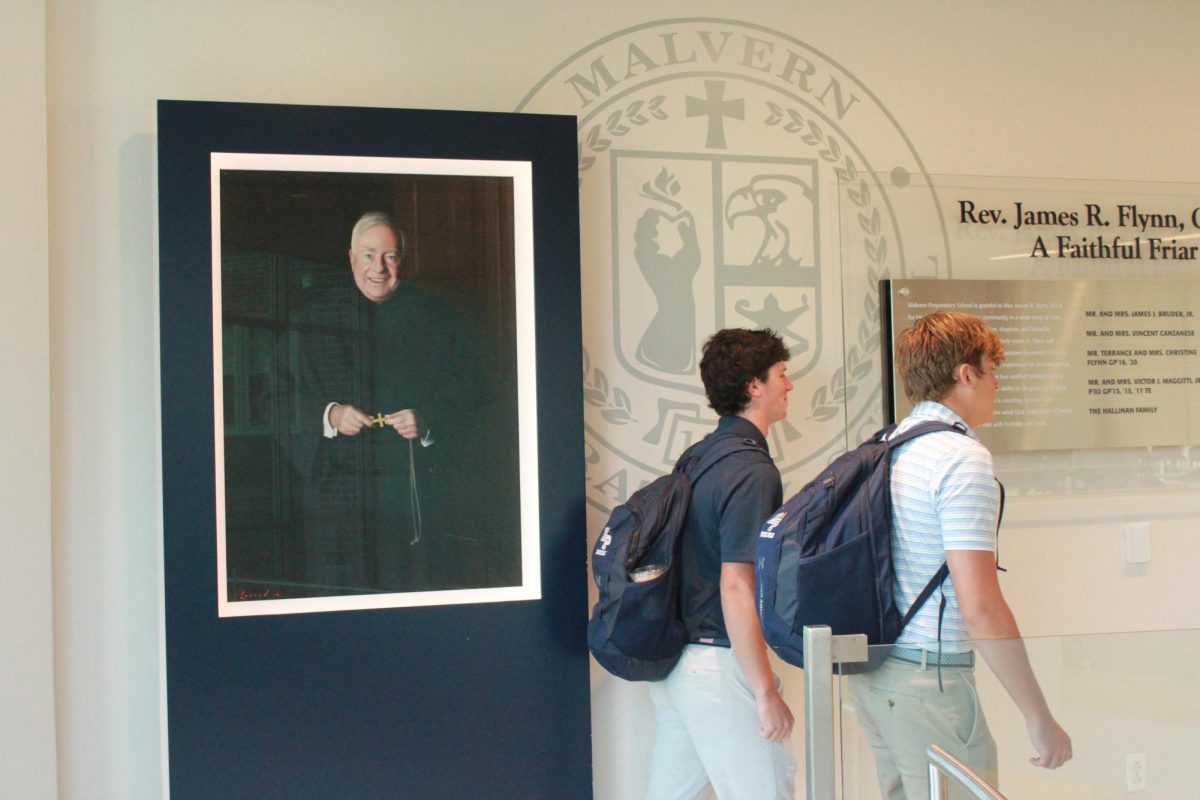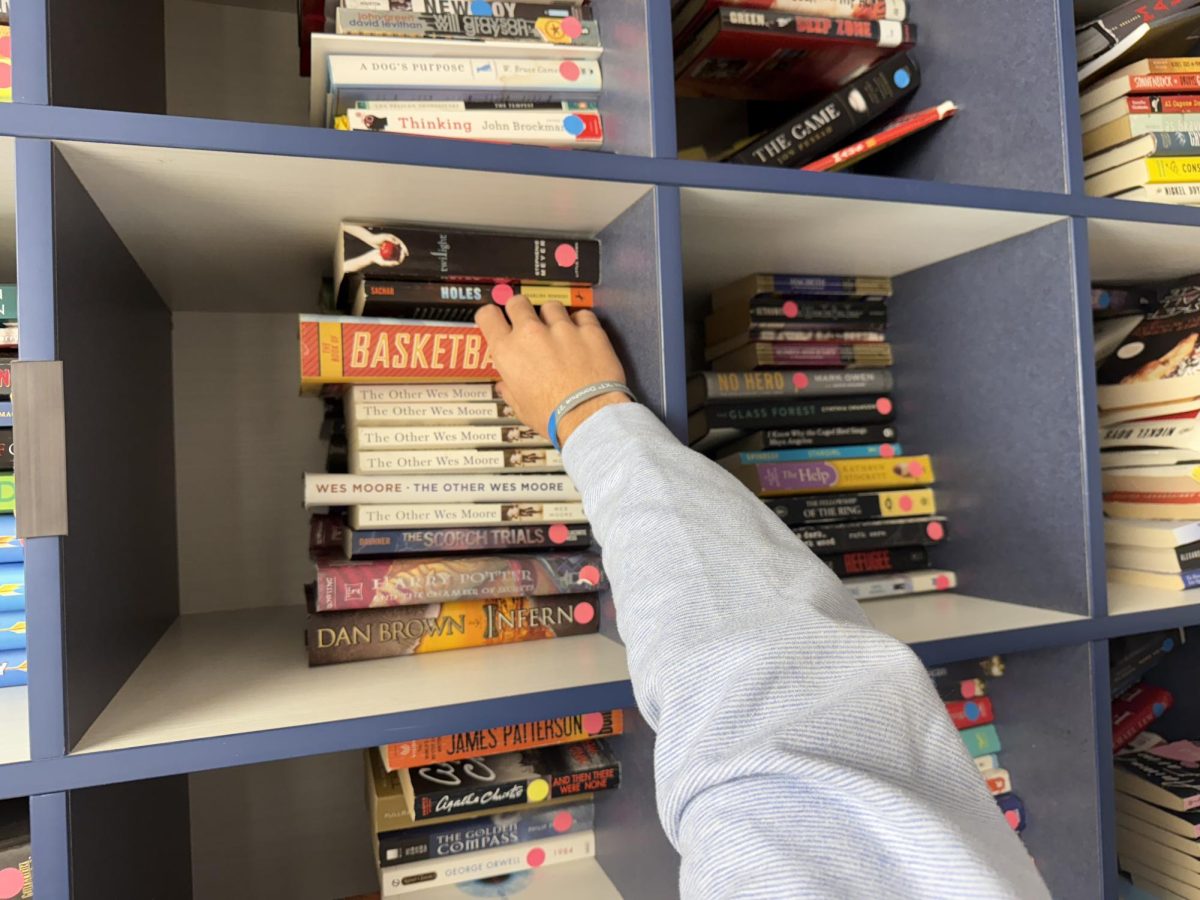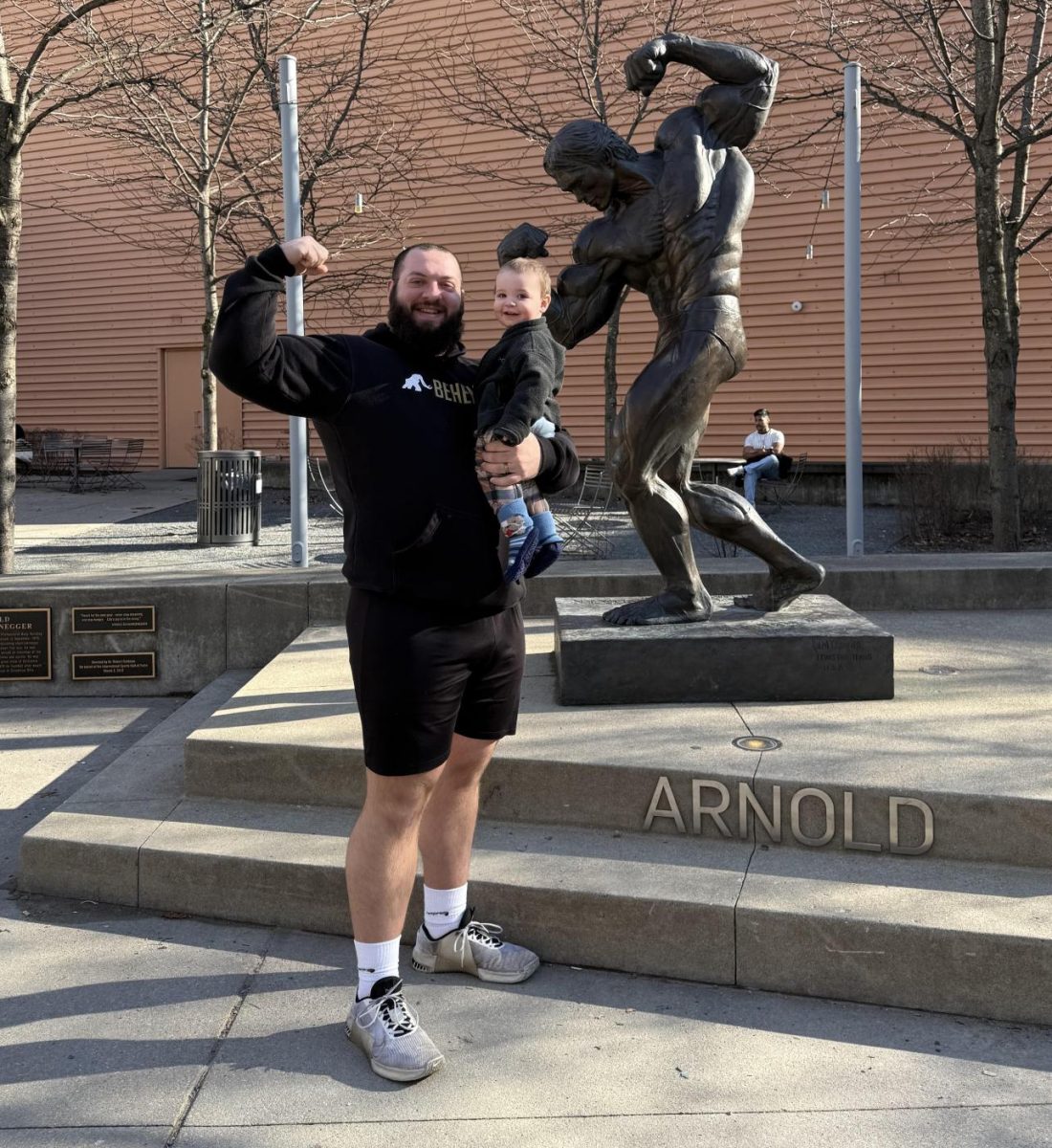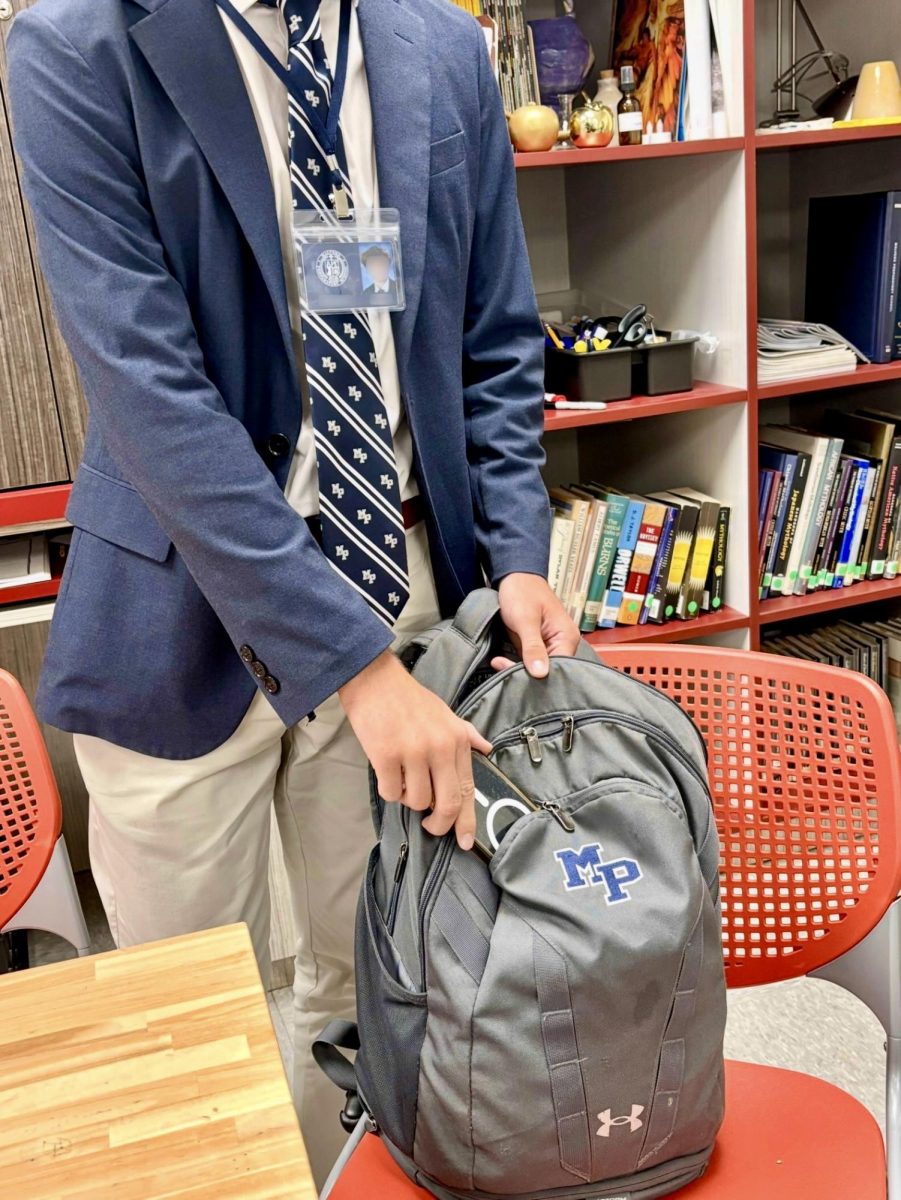Over the past few years, Malvern has introduced a way for students to express their creative ideas. Students apply to receive funding from a Student Incubator Grant. These grants give students resources to start new projects. More importantly, Student Incubator Grant receivers get full access to the team in the Student Idea Center with Ms. Vithayathil, Director of Student Idea Center, Director of Student Idea Center and Mrs. Lappas Director of Community Partnerships, Director of Community Partnerships. Students can access resources they could not obtain through the Malvern community. Skylar Smith ‘25 who has received a grant for Friar Fuel along with Josh Gorman ‘25 and Andrew Pellicciotta ‘25 emphasizes how Ms. Vithayathil and Mrs. Lappas are able to make connections across the nation to people who can help these three achieve their goals.
“They help us find connections everywhere,” Smith said.
Furthermore, Friar Fuel is a sports drink mix that was made by Friars for Friars to give students a healthy source of energy and hydration. Specifically aimed to replenish athletes during their games, the idea of Friar Fuel was created by Gorman, Smith, and Pellicciotta in the late stages of their sophomore year. The benefits of Friar Fuel are that there are only six ingredients and no preservatives. The inventors describe how important the Incubator Grant was to their operation when asked if their project would be possible without it.
“[Without the grant] there would not be a way for us to get the ingredients and materials needed to make Friar Fuel,” Pellicciotta said.
At Malvern, the Friar Fuel team wants to give a healthy, reliable, and enjoyable sports drink to both students and student-athletes. They feel they can allow students to focus on other aspects of their lives by lifting the burden of worrying about hydration off of their shoulders. Gorman sums up the team’s motivations on how Friar Fuel can benefit student life both in sports games and overall.
“Giving students a product that they can consistently use that is made here at Malvern would be huge [for us]. It is a product that we believe is truly better for you than other brands like Gatorade or Liquid IV that does a better job of hydrating in a healthier form,” Gorman said.
Another group of Student Incubator Grant recipients focused on health is the students working on the Malvern Ranch and the Navajo Nation Ranch. Zach Horwath ‘27 and Rocco Corrado ‘27 have been studying farming and soil fertility with the goal of helping others. Their focus was on making beds for plants that would later be given to food banks in the area. However, the Student Idea Center team bridged a connection to a Ranch near the Four Corners Region called “Navajo Nation”. Horwath and Corrado developed their understanding of agriculture at Malvern’s Ranch to assist the growth of alfalfa at “Navajo Nation”.
“We originally started an independent study with Dr. Fry and then we were presented with the opportunity to go to Navajo Nation,” Rocco said.
Navajo Nation or Buell Ranch is a ranch run by Alroy Billiman and his family. Alroy is a veteran who aims to involve the Navajo Nation communities in sustainable agriculture.
“He served in Iraq, and from his service, he lost his arm. He manages about 8,000 acres worth of his personal ranch where he has a lot of cattle. So we just went there; Villanova has been going for about three years [as well]. We go to help him–basically do the engineering part of his ranch–because he doesn’t have [an] engineering degree. We help bring our idea to help with his ranch work,” Horwath said.
Furthermore, Horwath explains how they received help applying for the grant.
“[The Student Idea Center] helped us apply for the grant and how to get through that whole system…then talking to us about further steps we needed to take after receiving the grant,” Horwath said.
You may be wondering how to apply for a Student Incubator Grant. Mrs. V sends an interest email to all students. Then, if you get through the interview process you will receive a grant. There are applicants accepted twice a year ending the year with around five total individual or group applications accepted. Also, middle school applications are accepted yearly.
Luke Bobbitt ‘26 and Boden Barry ‘26 have furthered the competitive nature at Malvern through a business ethics competition.
“How it works is you are given a case that has a moral dilemma, and then by using morals, school ideas, whatever it is, you interpret the case and create an ethical solution,” Bobbitt explains.
The business ethics competition will further students’ understanding of business and decision-making. This competition will bring real-world problems for students to solve. Many local schools are getting involved in the competition which will improve the experience.
The idea for this competition was sparked from a trip by Bobbit and Barry to Villa Joseph Maria in Holland, PA for their form of a business ethics competition.
“Last year we did a competition at Villa Joseph Marie High School and we kind of wanted to replicate the same thing here. So that kind of sparked the imagination, the idea of us doing it on our own, at Malvern, instead of having to go to another school to do [the competition],” Barry said.
The Business Ethics Competition will be on February 22nd at Malvern with all students welcome. The top prizes will be the ability to network and intern at a financial company and construction company.
Overall, the Student Incubator Grant is a great resource that gives creative students the ability to carry out their visions. It does this through funding and help from the Student Idea Center.
Another way the Student Idea Center benefits Malvern Prep is through micro-courses. Before Malvern went virtual because of the COVID-19 pandemic, teachers would hold a specific class after students returned from Christmas break. This was called the J-term and consisted of courses like poker, botany, March Madness, etc. However, it was discontinued after COVID-19 because Malvern wanted a change. Now, Malvern has turned to micro-courses, which are similar but run during lunch and community time.
Micro-courses usually have two to four 45-minute sessions led by a chosen facilitator. The facilitator showcases his knowledge to interested students who signed up for the course in the weeks prior. Micro Courses are led by Mrs Harriet Lappas, the Community Partnerships director. Since there are so many different clubs running during lunch and community time, there is a lot of work put into making sure that all of these clubs can be in unison. Also, finding a facilitator who can take time out of their day to bring his specific knowledge to the students here at Malvern Prep.
When asked what her biggest challenge is when getting a micro course started Mrs. Lappas states,
“Working with people’s schedules is tough because obviously, these people are all working as well. We’re asking them to come here in the middle of the day, which is not easy,” said Mrs. Lappas.
Mrs. Lappas has done a great job getting the word out about the micro-courses, and some of the most popular courses attract around 50 to 75 individuals. The most popular courses are usually about cryptocurrency and sports nutrition, two subjects that are very relevant in Malvern’s community. While these courses have about 50-75 people signing up, about a third or a fourth do not attend every meeting. Something unexpected coming up is always a possibility, but Mrs. Lappas stresses that you really should not sign up if you can not come.
“My thing is always like, if you can’t come, like, don’t sign up, because I find spaces on campus [to occupy how many students signed up],” Mrs. Lappas said.
The whole Malvern community, from teachers to students, agrees that micro-courses benefit Malvern Prep as a whole. Dr. Rick Poce, a teacher and a facilitator of the micro-course, Controlling the Controllables. This course aimed to help students use mindfulness to help students manage stress and anxiety.
“[It’s] important to make the material accessible for the audience [to keep them engaged]. The beauty of the system is that once the material is prepared it can be used for future sessions,” Dr. Poce said.
Students also find that micro-courses benefit them positively. Since you can choose what you sign up for, students can focus their interests on what they may pursue as a career, or just what they are interested in.
“Micro courses give you opportunities to learn something that you would not find in your everyday classes. I’ve found at least in my experience that the class never gets boring because they are always interactive,” Kieran Spinelli ‘25 said.
All in all, micro-courses have helped the Malvern community become more interactive and involved. The diversity of courses helps each student figure out what they want to be associated with. Thanks to Mrs Lappas, Mirco-courses have been running smoothly and helping students, teachers, and peers become more interactive with each other.
Another way that students can focus on their interests is Independent study. Independent study is also a part of the Student Idea Center and offers a time for students to turn their attention to a specific study with mentors to help them see different points of view.
Malvern students have always been interested in taking the studies they are interested in outside of the classroom to experience them in a more independent setting. Until a couple of years ago, this wasn’t possible. Now, students can create independent studies, with the primary goal of allowing the student to explore their intellectual and artistic interests.
When students find something they are interested in, they bring it to the Student Idea Center and start the process. Mrs. V paints a picture of the creation process.
“So the students come to me, and we start talking about an idea, and once we’ve got an idea that’s developed, then what we’ll do is, reach out, to see if there’s a mentor. It could be someone on campus, an alum, or I could be doing it as well. And then when you find a mentor, we really sort of lay out the details of that independent study,” Mrs. V said.
Independent studies have many different looks to them. The topic of the study affects the timeline, workload, and what the actual study looks like. Some studies are more independent than others, where you have a teacher as a mentor, but the student researches on his own time.
This allows students to bring their ideas to life with the help of a mentor because they are given time and the right environment to learn. Luka Burkholder ‘27 speaks on his mentor’s impact on his Spanish independent study.
“My mentor is guiding me and providing me with the tools and resources to effectively create a Spanish program for my independent study. Profe Wright makes herself available to answer questions and to teach me important concepts for my topic. Without her, I wouldn’t be able to do it. I appreciate her time and sharing her expertise with me,” Burkholder said.
Some students create their independent study to carry out their interests in a class they have taken at Malvern. They feel that they didn’t get everything they wished out of the class or that they enjoyed the class so much they wanted to learn more about that topic. Malvern student Brody Bell ‘25 talks about his experience taking a ceramics class and then continuing the class with an independent study.
“It is really great to be able to do something fun and interesting during my extra free time. I really enjoyed ceramics last year, and I wanted to do it again in the first semester, so I took an independent study. It was a great experience,” Bell said.
Many independent studies are created from outside interests as well. Mrs. V speaks on other independent studies that are taking place at the moment and students’ goals for their study.
“Malvern has a student right now who grows his own peppers. He is coming up with his own hot sauce, so he ferments them, and he is trying to come up with a hot sauce recipe that eventually he would actually like to take the hot sauce to market and raise money for a nonprofit. We have another student who’s in flight school. Where he comes in here and does his online courses during one of his free periods in hope to be a pilot,” Mrs. V said.
Malvern’s independent study program gives students the opportunity to explore their passions in a more personalized and self-directed way. By allowing students to take ownership of their learning, academically, artistically, or through other outside interests they may have. With the guidance of mentors, students are able to have more advanced knowledge and create skills in areas they are genuinely interested in. Furthermore, the diversity of independent study projects shows how Malvern empowers students to turn their interests into reality. This program not only advances the educational experience at Malvern but also prepares students for future success by encouraging them to think critically and take initiative while pursuing their goals.
The Student Idea Center is yet another thing that sets Malvern apart from other schools. The Student Idea Center is a unique opportunity where Malvern students can harness their creativity and desire for learning. Through micro courses, independent studies, and student incubator grants, Friars can personalize their learning and back their creative projects with funding.


